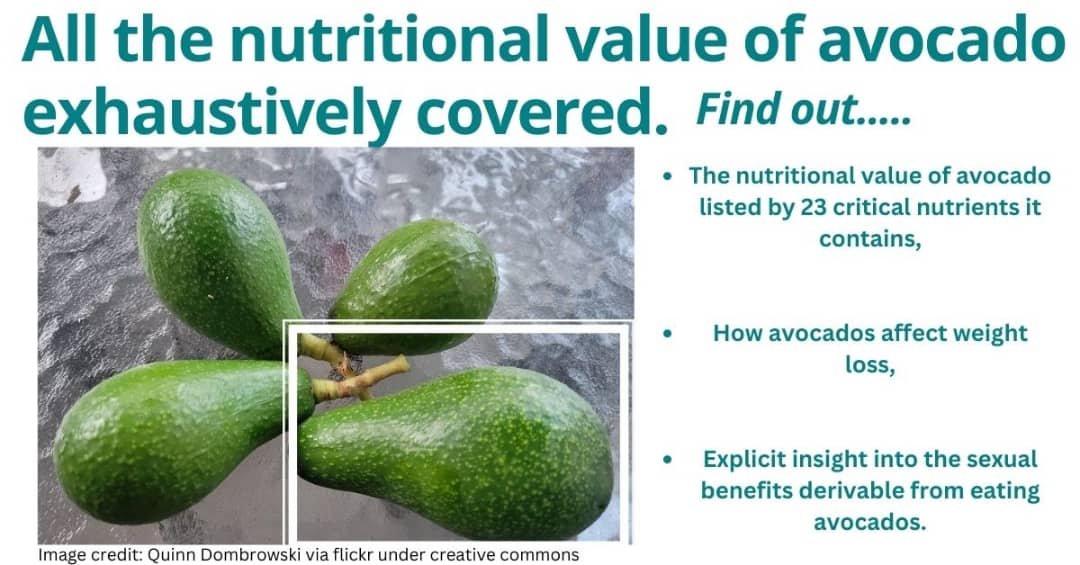
Table of Contents
The documented nutritional value of avocados makes them stand out as superfoods with lots of health benefits. They are a source of many essential nutrients with significant positive impacts on normal metabolic functions, disease prevention, recovery from ailments, anti-inflammatory, anti-aging, and reproductive health.
It is a known fact avocados are calorie-dense foods but they are generally low in carbs as most of their calorie content comes from healthy fatty acids. Furthermore, a whole avocado fruit offers you a good portion of the daily value for most of the nutrients it contains.
In the article, we’ll be presenting the nutritional value of avocados with a focus on the health benefits of some of the individual nutrients you get from the fruit.
Whole avocado nutrition facts.
In previous articles, we gave the nutrition facts or data for medium-sized avocados, small avocados, and even half an avocado, in this write-up we are going to present the data for a large-sized avocado fruit weighing 201g. In the last article we limited the data to 15 nutrients but this time we’ll include 8 more because we want to highlight the health benefits of individual nutrients.
| Nutrition | Amount |
|---|---|
| Water | 147g |
| Energy | 322Kcal |
| Protein | 4.02g |
| Lipids (Fats) | 29.5g |
| Carbs | 17.1g |
| Dietary fiber | 13.5g |
| Calcium | 24.1mg |
| Iron | 1.1mg |
| Magnesium | 58.3mg |
| Phosphorus | 105mg |
| Potassium | 975mg |
| Sodium | 14.1mg |
| Zinc | 1.29mg |
| Copper | 0.382mg |
| Manganese | 0.285mg |
| Selenium | 0.804µg |
| Fluoride | 14.1µg |
| Vitamin C | 20.1mg |
| Choline | 28.5mg |
| Vitamin A | 293 IU |
| Vitamin E | 4.16mg |
| Lutein + Zeaxanthin | 545µg |
| Vitamin K | 42.2µg |
The above data is based on a large avocado. Size matters in coming up with data such as this as the amount of nutrients is proportional to the size or weight of an avocado. For instance, a medium-sized whole avocado has about 240 calories or 3g of protein and not the 322 calories or 4.02g of protein you’ll get from a large fruit as published by the Harvard School of Public Health (HSPH).
Avocado nutrition benefits from 23 nutrients it contains.
You may have heard how avocado helps in the prevention of cancer, heart diseases, enhanced digestion, removal of anti-oxidants, reproductive health, etc. All of these health benefits are due to the contribution of the individual nutrients contained in an avocado.
Here, we will list 23 of the key nutrients you get from avocado to highlight what each nutrient brings to the table about these health benefits.
1. Water: This is the major composition of the human body so its importance can hardly be over-emphasized. It may surprise you that 60% of your body is composed of water. Certain organs in your body are composed of water to even greater degrees e.g.
- The heart and brain are made up of 73% water,
- Lungs are composed of 83% water,
- Skin is composed of 64% water,
- Kidneys – 79%
- Bones – 31%. (source)
Water is very important for many physiological processes and functions in the body including:
- Removal of waste products in the body via urination and perspiration,
- Body temperature regulation,
- Digestion of ingested foods,
- Prevention of dehydration,
- Prevention of constipation as it activates insoluble fibers in your diet when it mixes with them,
- Helps maintain blood volume and pressure as over 90% of blood plasma is water as published in the National Library of Medicine (NLM).1
2. Energy: Everything you do requires energy including vital cellular processes in the body. Avocados provide more energy than most other fruits out there.
3. Proteins: This is the building block of your muscles and a lot of other tissues in your body. They help in the maintenance or building of your muscle mass, weight loss, and your body’s resistance to infections as they are essential in the formation of antibodies.
4. Lipids(fatty acids): These are mostly unsaturated fatty acids but are largely the reason why avocados are packed with calories. 80% of these fats are unsaturated fatty acids. A Study published by the Harvard School of Public Health has shown replacing calories from carbs with those from unsaturated fats helps reduce cholesterol levels, increase levels of high-density lipoproteins, lower blood pressure, and reduce the risk of cardiovascular diseases.
5. Carbs: This is usually a cause of concern for many but avocados are not high in carbs as one would expect. Studies have shown that the amount of carbs in your foods is not as important as the source. Getting carbs from unprocessed natural sources is healthier than from processed and refined sources. (source)
6. Dietary fiber: Avocados contain mainly insoluble fibers but with a good quantity of soluble ones. These help to add bulk to stool and prevent them from becoming hard thereby helping to prevent or get rid of constipation.
Kindly keep in touch by signing up for our newsletter:
Fibers prevent colon cancer by facilitating the rate at which solid wastes are eliminated, preventing the absorption of cholesterol by trapping them, preventing blood sugar spikes by slowing down digestion, etc. You may want to find out a lot more about the dietary fibers in avocados in our previous article.
7. Calcium: They are essential for healthy bones and teeth, contraction of muscles, function of nerves, clotting of blood, and regulation of heart rhythm. (source)
8. Iron: It’s important for growth and development, immunity, and temperature regulation, and is usually a key component of hemoglobin in red blood cells but not inclusive of the type you get from avocados. About 4 to 5 million Americans suffer from the deficiency, otherwise called iron deficiency anemia, annually. (source)
Irons from plant-based foods are nonheme irons. This means they are not the type used in the formation of hemoglobins. Heme irons are those from animal sources.
9. Magnesium: It is a cofactor for many enzyme systems and helps in the regulation of different biochemical reactions in your body, synthesis of proteins, control of blood sugar, synthesis of DNA and RNA, regulation of blood pressure, and so much more. (source)
10. Phosphorus: It’s vital for strong bones and teeth, just like calcium. Additionally, it helps with the metabolism of carbs and fats in the body and the synthesis of protein for the repair of cells and tissues. (source)
Phosphorus is also a key component of cellular membranes, gene transcription, enzyme activation, etc. (source)
11. Potassium: Though its main work is the regulation of intracellular fluids(fluids inside your body cells), it has some electrical charge that activates nerve and cell functions. (source)
Eating potassium-rich foods is advised for hypertensive people as it helps in the reduction of blood pressure by reducing the effect of sodium. Moreover, the consumption of more potassium is known to lead to the excretion of more sodium via urine. Its effect in the reduction of blood pressure is further enhanced by its ability to ease the tension in the walls of blood vessels. (source)
12. Sodium: While potassium works to maintain intracellular fluid levels, sodium works to maintain extracellular fluid levels. Your body needs only small amounts of sodium(about 500mg daily) to maintain the balance of water and minerals, muscle contraction and relaxation, and impulse conduction by nerves. Excess sodium levels can lead to high blood pressure and stroke. (source)
It’s been found Americans consume up to 3,400mg of sodium daily. This is way beyond the physiological need for sodium. Roughly 7 times what your body needed. Fortunately, avocados are low in sodium, offering only about 14mg in a large fruit.
The contribution of salt to the flavor of your meals is not in doubt but folks just have to cut down on the level of consumption for the sake of their loved ones if nothing else. When your health goes south your loved ones suffer with you, especially if you were the breadwinner.
It may surprise you how your taste buds could quickly adapt to lower sodium consumption. Foods that could seem tasteless with little added salt will no longer feel that way within a short time. Several weeks ago I experimented on myself.
For a couple of days, I ate meals with no added salt at all. As expected, it lacked the usual taste or flavor but I endured. Then, I prepared a meal with some seasoning cubes. Technically:
- I used far fewer cubes than I would’ve on a normal day.
- No amount of those cubes usually works for me. The food will remain tasteless to me till I’ve added quite an amount of table salt to the meal.
When I ate the food it tasted just as delicious as it used to be when I added twice as many seasoning cubes with lots of table salt. This is simply the body adapting to changes. It follows the same principles with temperature changes.
Your perception of temperature is subject to what you’ve been previously exposed to. Water at normal room temperature could feel very warm if you’ve been subjected to freezing temperatures, but cold for someone who has been subjected to hot weather.
Let this encourage you to cut down on your sodium intake to levels your body needs. You’ll still get to enjoy the flavor of your meals with lower and safer salt consumption. Below is my avocado-rich breakfast on a good morning just a couple of days ago and it contains very little sodium.

The bread could have been tasteless if not for the avocado. With each slice wrapping a fair deal of avocado, it tasted quite yummy. The bread may also be toasted for a better taste. You may want to find out the various ways you can prepare avocado toast with eggs.
13. Zinc: As one of the trace elements, Zinc is needed in small amounts in your body but for a great number of physiologic and metabolic processes. It’s vital for hundreds of enzymatic processes, immunity, DNA synthesis, healing of wounds, and cellular division and growth. (source)
The presence of zinc is one of the reasons avocados are considered important for pregnancy, reproduction, and child development.
14. Copper: It is a cofactor(enabler) for a group of enzymes called cuproenzymes. These play roles in Iron metabolism, production of connective tissues and energy, immune system function, brain development, protection of body cells from oxidative damage, and building of new blood vessels otherwise called angiogenesis. (source)
15. Manganese: It is also an enabler or cofactor for many enzymes involved in the metabolism of glucose, carbohydrates, and proteins(amino acids). It plays a role in reproduction, formation of bone, immunity, and clotting of blood in which it assists vitamin K. (source)
16. Selenium: The trace element is a part of many enzymes and proteins called selenoproteins which help protect cells from damage, and infections, and assist in the making of DNA. There are over 24 selenoproteins and they play vital roles in human reproduction and metabolism of thyroid hormone. (source)
17. Fluoride: The main function is the building of strong bones and teeth plus the prevention or reversal of dental caries. Caries are damaged areas in the teeth that result in tiny holes. (source)
18. Vitamin C: It’s needed for the synthesis of collagen that goes into the production of connective tissues used in wound healing. Vitamin C is also vital in making substances used in the transmission of nerve impulses called neurotransmitters. It’s also a known anti-oxidant and immune booster. (source)
Finally, it is essential for the maintenance of bones, cartilage, healthy skin, and blood vessels. (source)
19. Choline: As a nutrient, it helps with muscle function, memory, and mood regulation, as an important part of a nerve impulse-carrying substance called acetylcholine. It also helps in cell membrane formation. (source) Most of it is metabolized in the liver into phosphatidylcholine which helps build fat-carrying proteins and assists in breaking down bad fatty acids called cholesterol. (source)
20. Vitamin A: With this vitamin the first thing that comes to mind is vision. Yes, it helps improve your vision and your eye’s ability to adjust in dim light but that’s not all there is to it. It helps the lungs, heart, and other body organs to function optimally. (source)
It has also been found to help in bone remodeling, regulation of the division, and growth of body cells as required for reproduction, plus the production of white blood cells for immunity. (source)
21. Vitamin E: This has a distinguishing function as an anti-oxidant by preventing the formation of reactive oxygen species (ROS) produced when your body converts food to energy. It is also anti-inflammatory, boosts immunity, and prevents aggregation of blood platelets. (source)
22. Lutein + Zeaxanthin: These are pigments with anti-oxidant properties. They help your vision by clearing free radicals from your eyes. Lutein and zeaxanthin supportive therapy is believed to delay the progression of age-related macular degeneration (AMD) and cataracts as published in the National Library of Medicine.2
23. Vitamin K: Nearly everyone knows vitamin K saves lives after injuries by helping the blood to clot thereby preventing further bleeding. However, research published in Pubmed Central has shown this vitamin does a lot more:
- It’s anti-calcification,(women with breast implants can relate),
- It’s an Anticancer substance,
- It’s Insulin sensitizing,
- It helps in bone formation, and
- Reduces the side effects of warfarin.3
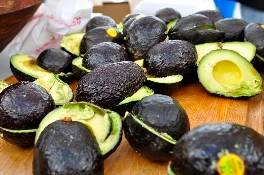
Is avocado good for weight loss?
Avocados may be packed with calories but the presence of rich healthy fat and dietary fiber content increases satiety and keeps you feeling fuller for a long time. The effect of this is that you not only tend to consume fewer calories but go much longer between meals without the urge to eat more. In other words, it’s not a bad choice for weight loss.
In one study 61 volunteers were assigned to two groups. In one of the groups, volunteers were to consume 200g/d of avocado as a substitute for mixed dietary fats during the experiment. Avocado was excluded from the meal of the control group. 55 volunteers completed the experiment and the compliance rate to avocado intake was 84.6%.4
At the end of the study, it was found that consuming as much as 200g/d avocados which contain up to 30g of dietary fat doesn’t compromise weight loss.
With the known effect of its rich fiber and fat content on satiety and fullness as stated earlier, one can infer avocados, when consumed in moderation can be helpful to your weight loss efforts.
Avocado benefits sexually.
As we’ve seen by diving into the nutritional benefits of each nutrient contained in avocados, they play a great role in promoting sexual health and reproduction. In a study, avocados were found to increase libido and they also contain Boron that improves testosterone levels as published in Nutrient Journal.
Several nutrients in avocado, as highlighted in this article, have been found to have anti-oxidant effects that protect relevant sexual organs and cells from oxidative damage. They also protect against cancers like breast cancer, prostate cancer, and cervical cancer which all affect sexual organs making it difficult to have normal sexual relations with a partner.
This is in addition to the fact that many of the nutrients discussed in this topic contribute immensely to the optimal health and function of the nervous system. They also promote and are part of components of nerve impulse-conducting substances called neurotransmitters. All of these are needed for pleasurable sexual experiences.
I hope this article was informative and helpful. If so, you may do well to share it so others could learn a thing or two from it as well. Don’t hesitate to leave any questions you may have in the comment section or send an email if you want to keep it confidential.
References.
- InformedHealth.org [Internet]. Cologne, Germany: Institute for Quality and Efficiency in Health Care (IQWiG); 2006-. What does blood do? [Updated 2019 Aug 29]. Available from: https://www.ncbi.nlm.nih.gov/books/NBK279392/ ↩︎
- Mrowicka, M., Mrowicki, J., Kucharska, E., & Majsterek, I. (2022). Lutein and Zeaxanthin and Their Roles in Age-Related Macular Degeneration—Neurodegenerative Disease. Nutrients, 14(4). https://doi.org/10.3390/nu14040827 ↩︎
- DiNicolantonio JJ, Bhutani J, O’Keefe JH. The health benefits of vitamin K. Open Heart. 2015 Oct 6;2(1):e000300. doi: 10.1136/openhrt-2015-000300. PMID: 26468402; PMCID: PMC4600246. ↩︎
- Pieterse, Z., Jerling, J., Oosthuizen, W., Kruger, H., Hanekom, S., Smuts, C., & Schutte, A. (2004). Substitution of high monounsaturated fatty acid avocado for mixed dietary fats during an energy-restricted diet: Effects on weight loss, serum lipids, fibrinogen, and vascular function. Nutrition, 21(1), 67-75. https://doi.org/10.1016/j.nut.2004.09.010 ↩︎



























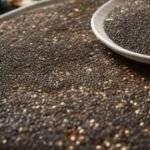
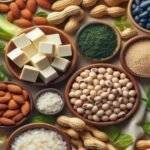
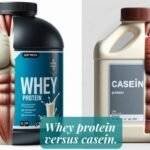











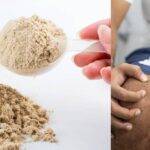












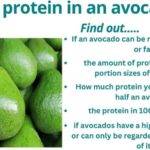
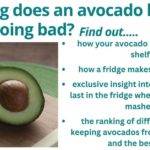
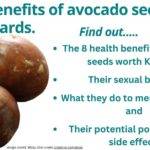


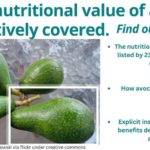
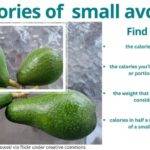
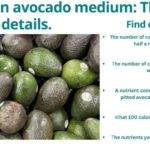
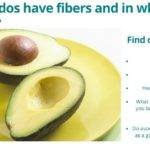
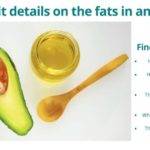

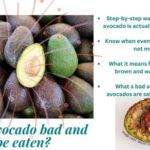












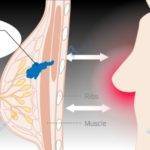










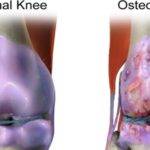















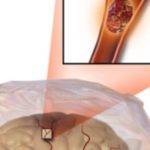

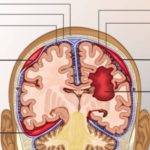
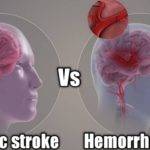



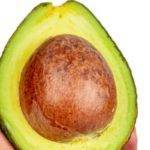



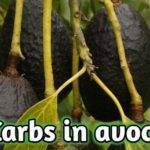







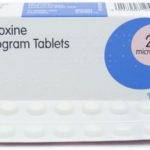


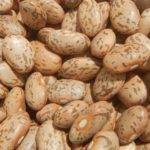
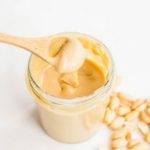








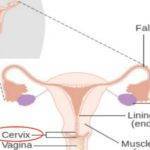


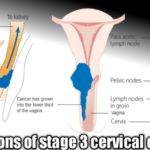
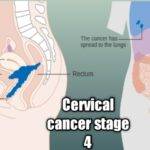









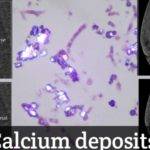






I will recommended this blog by my cousin. You are amazing! Thanks!
Your post is quite valuable for me. Thanks!
Excellent blog!